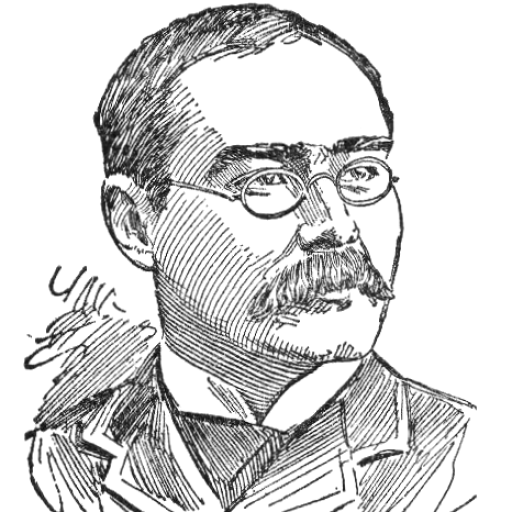Tales of far magic unrolled …

It is rare for Kipling to write a love song, and one sung by a woman at that. ‘A Song in the Desert’ is in a way the counterpart to ‘Mandalay’: while ‘Mandalay’ describes the feelings of the man going away, ‘A Song in the Desert’ relates the experience of the woman left behind. While this is a poem of wandering and wonder, it carries the motive of strength in adversity – “Yet, he said – yet he said / ‘Cease not from singing.”’
This poem was written in memoriam of Kipling’s great friend Perceval Landon, who died in 1927. Landon was one of the best-known foreign correspondents of his day, who travelled to many countries, especially in Asia. Kipling met him in 1900 when they were both in Bloemfontein as correspondents on the Boer war. They remained life-long friends, and Landon was one of the few people that Kipling’s wife Carrie trusted. The poem celebrates Landon’s travels in the wild places of the world, his uncomplaining endurance of dangers and discomforts, and his magical tales.
Kipling uses the archaic “thou” form – “beholdest”, “hast” – to convey the impression of a person talking a language other than English, and to create for that person an Old Testament, larger-than-life stature. The complex internal rhymes of many lines add much to the effect of the poem.
A Song in the Desert
Friend, thou beholdest the lightning? Who has the charge of it - To decree which rock-ridge shall receive - shall be chosen for targe of it? (1) Which crown among palms shall go down, by the thunderbolt broken; While the floods drown the sere wadis where no bud is token? (2) First for my eyes, above all, he made show of his treasure. First in his ear, before all, I make sure of my measure. If it were good - what acclaim! None other so moved me. If it were faulty - what shame? While he mocked me he loved me. Friend, thou hast seen in Rida'ar, the low moon descending, One silent, swart, swift-striding camel, oceanward wending? Browbound and jawbound the rider, his shadow in front of him, (3) Ceaselessly eating the distances? That was the wont of him. (4) Whether the cliff-walled defiles, the ambush prepared for him; Whether the wave-crested dunes - a single sword bared for him - Whether cold danger fore-weighed, or quick peril that took him Alone, out of comfort or aid, no breath of it shook him. Whether he feasted or fasted, sweated or shivered, There was no proof of the matter - no sign was delivered. Whatever this dust or that heat, or those fools that he laboured with, He forgot and forbore no observance towards any he neighboured with. Friend, thou hast known at Rida'ar, when the Council was bidden, One face among faces that leaped to the light and were hidden? One voice among night-wasting voices of boasting and shouting? And that face and that voice abide with thee? His beyond doubting! Never again in Rida'ar, my watch-fire burning, That he might see from afar, shall I wait his returning; Or the roar of his beast as she knelt and he leaped to unlade her, Two-handedly tossing me jewels. He was no trader! Gems and wrought gold, never sold - brought for me to behold them; Tales of far magic unrolled - to me only he told them, With the light easy laugh of dismissal 'twixt story and story - As a man brushes sand from his hand, or the great dismiss glory. Never again in Rida'ar! My ways are made black to me! Whether I sing or am silent, he shall not come back to me! There is no measure for trial, no treasure for bringing. Allah divides the Companions. (Yet he said - yet he said: - "Cease not from singing.")
Notes
[1] ‘Targe’ – target
[2] ‘Sere wadis’ – dry water-courses.
[3] ‘His shadow in front of him’ – he was riding east to the ocean – the scene was probably in Oman.
[4] ‘The wont of him’ – his habit.
